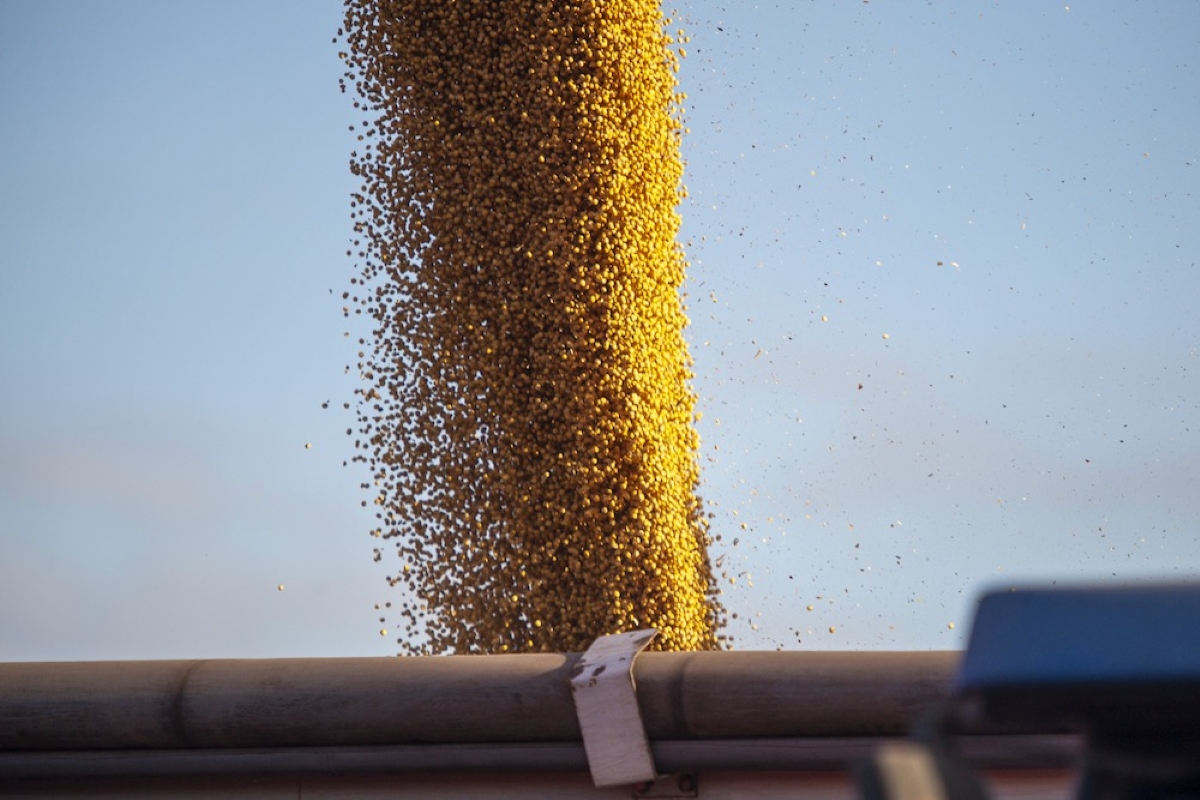London/Brussels | Reuters — SABMiller shareholders overwhelmingly backed the brewer’s takeover by Anheuser-Busch InBev on Wednesday, clearing the last big hurdle for one of the largest corporate mergers in history.
When the deal closes, which AB InBev said Wednesday it expects to happen Oct. 10, the combined group will sell more than a quarter of all beers sold worldwide and be the fifth-largest consumer goods company.
For AB InBev, the maker of Budweiser, Corona and Stella Artois, it provides entry into Africa and large fast-growing Latin American markets such as Colombia and Peru.
Read Also

Brazil to reap record soy crop in 2025/2026, increase exports
Brazil’s Conab said the country will reap a record soybean crop of 177.6 million tons in the 2025/2026 harvest year, according to data released on Thursday.
AB InBev, whose Canadian holdings include Labatt Brewing and brands such as Alexander Keith’s and Kokanee, will also cut its revenue from mature markets North America and Europe, to 37 from 47 per cent.
AB InBev’s 79 billion-pound (C$135 billion) bid passed in a meeting at a London Park Lane hotel lasting less than half an hour, overseen by chairman Jan du Plessis, who fielded only two questions from shareholders.
It secured support representing 95.5 per cent of SABMiller share value, having needed at least 75 per cent to succeed.
In an earlier meeting in Brussels, AB InBev CEO Carlos Brito said the new entity would continue to be called Anheuser-Busch InBev, eschewing any corporate reference to SABMiller, founded 120 years ago in South Africa. The brewer had changed its name after transformative deals in the past, such as InBev’s 2008 takeover of Anheuser-Busch.
“They can call it what they wish. That’s the way life works and that’s fine,” du Plessis told reporters after the meeting. “It’s what it is.”
He added that AB InBev were paying “a full price.”
Not a given
The approval of SAB shareholders was widely expected, but not a given. Criticism of the takeover offer grew after a steep fall in sterling following Britain’s vote to leave the European Union made AB InBev’s cash offer less appealing.
Activist shareholders pressured SAB to seek a higher offer, prompting AB InBev to sweeten its bid in July.
SAB backed the higher offer, and its two largest shareholders, cigarette maker Altria Group and the Santo Domingo family of Colombia, who together control about 40 per cent of the shares, gave their support and did not vote on Wednesday. However, some prominent shareholders, including Aberdeen Asset Management, continued to oppose it.
“We are obviously disappointed with, but not surprised by, the result,” Aberdeen said in a statement, adding it felt the final price still “significantly undervalued” SABMiller.
Despite hedge funds piling into the stock over the summer in the hope of a higher offer, Thomson Reuters data showed just six hedge funds with a collective investment of US$211 million remained shareholders as the deal crossed the line.
The lion’s share of that, US$199 million, was held by New York-based Soroban Capital, with smaller positions held by HBK Investments, Platinum Capital Management, Elliott Management, Farallon Capital Management and Davidson Kempner Capital.
Cost-conscious AB InBev expects to extract at least US$1.4 billion in annual cost savings after four years, it said, in addition to the US$1.05 billion already announced by SABMiller. Given the company’s history of easily beating such targets, broker Jefferies sees it achieving US$3 billion in savings.
The new company will sell off joint venture stakes in the U.S. and China, to satisfy antitrust regulators, divest Peroni and Grolsch and kick off a sale process for SAB’s central and eastern European brands, estimated to be worth up to seven billion euros (C$10.3 billion).
The assets to be sold include SABMiller’s 58 per cent stake in U.S. brewing firm MillerCoors, plus the Miller brand portfolio outside the U.S.
Both are to go to SABMiller’s j.v. partner, Molson Coors, once AB InBev’s takeover closes next month. The U.S. Department of Justice approved the MillerCoors stake sale to Molson Coors in July.
MillerCoors has produced the two companies’ Miller and Coors beer brands, as well as brands such as Molson Canadian, Foster’s and Peroni, for sale in the U.S.
Competition in individual markets is not expected to change radically after the merger, as the SABMiller and AB InBev companies have little geographic overlap.
— Reporting for Reuters by Martinne Geller and Philip Blenkinsop; additional reporting by Simon Jessop in London. Includes files from AGCanada.com Network staff.













